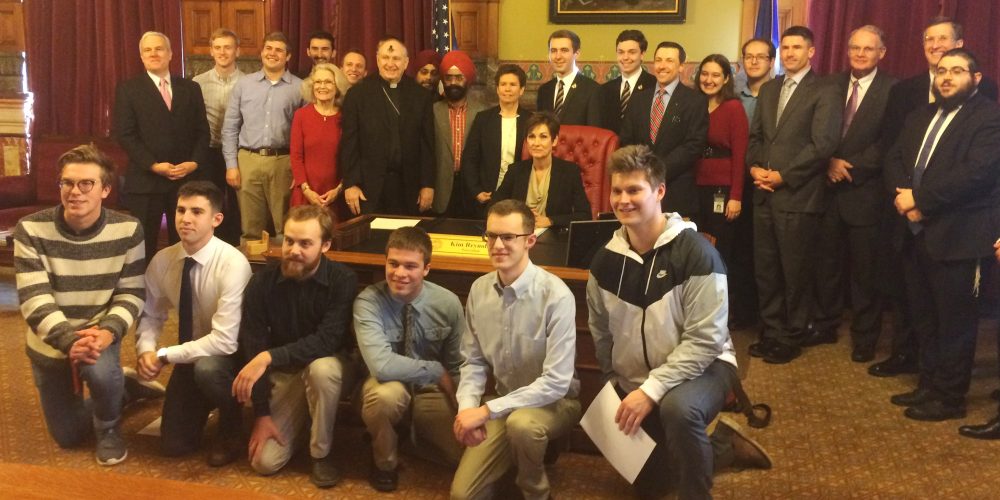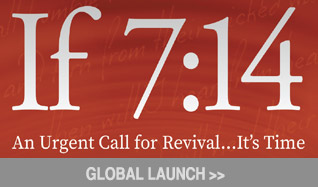In a huge day for religious liberty at the Iowa Capitol, Gov. Kim Reynolds signed the Iowa Religious Freedom Proclamation, and a pair of bills protecting religious liberty advanced in the Iowa Senate process.
The governor’s proclamation establishes April 13, 2018, as Iowa Religious Freedom Day and states, in part, “Both the United States Constitution and the Constitution of the State of Iowa affirm the right of all citizens to freely exercise their religious faith in the public square.”
On the Senate side, a bill designed to protect religious liberty on campus after a Christian student group was decertified at the University of Iowa passed through the Senate Education Committee.
The bill, SSB 3120, was drafted after the University demanded student group Business Leaders in Christ, or BLinC, alter its statement of belief in order to accommodate professing homosexuals in the group’s leadership. When the student group refused, BLinC was effectively kicked off campus. BLinC’s lawsuit against the University is still pending.
SSB 3120 now moves to the Iowa Senate, and should it reach the governor’s desk, it would prohibit public institutions of higher education from withholding benefits from student groups that adhere to “sincerely held beliefs” and that require its members and leaders to adhere to the group’s statement of faith.
Religious liberty scored an even more sweeping victory with the advance of SSB 3171, a Religious Freedom Restoration Act, or RFRA, through the Senate Local Government Committee. The vote was won along party lines, with seven Republicans voting in favor and four Democrats voting against.
In 1993, a national RFRA passed the U.S. Congress by an overwhelming vote (unanimous in the House and 97-3 in the Senate), and it was signed by President Clinton. RFRA’s protections, however, extend only on a federal level, while at the state level, religious liberty remains in jeopardy. SSB 3171 attempts to remedy that for Iowans.
Contrary to opponents’ claims that RFRA is a form of “discrimination,” however, the bill is much more nuanced. Like the federal statute, it merely establishes that the state must show a “compelling interest” when it “burdens” an individual’s religious liberty and requires the state to seek remedy in the “least restrictive” means possible.
RFRA would by no means settle the debate over religious liberty disputes in the public square – such as the highly publicized cases of bakers, florists, or even Iowa’s Gortz Haus – but it does seek to ensure people of all faiths receive a fair hearing when the government tramples First Amendment religious liberty rights.
Both religious liberty bills now face the daunting task of being passed on the floor of the Senate, being similarly passed in the House, and being signed by the governor. Please join The FAMiLY LEADER in prayer that Iowa’s leaders would see the value in preserving and protecting the religious liberty for all Iowans of faith!



